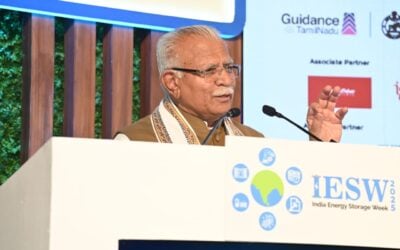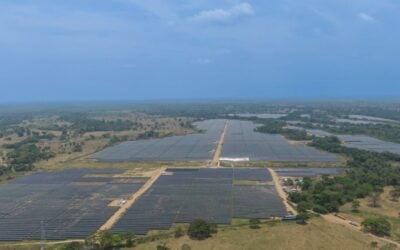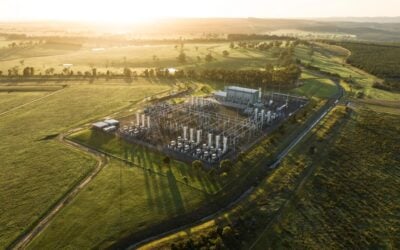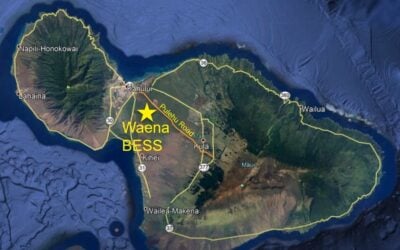
Chile utility Colbun has faced a setback with its 800MW pumped hydro energy storage (PHES) project after its environmental impact assessment (EIA) process was terminated early, having been deemed to have provided too little information.
The firm proposed the Paposo Pumped Power Station earlier this year, which would be built in the commune of Taltal, Antofagasta region, with an upper and lower reservoir using captured seawater and an on-site desalination plant. It would connect to the National Electric System (SEN) via a 220kV line.
Enjoy 12 months of exclusive analysis
- Regular insight and analysis of the industry’s biggest developments
- In-depth interviews with the industry’s leading figures
- Annual digital subscription to the PV Tech Power journal
- Discounts on Solar Media’s portfolio of events, in-person and virtual
Colbun submitted its environmental impact study (EIS) in June 2024, but earlier this week (12 August), the Environmental Assessment Service (SEA) for Antofagasta issued an ‘early termination notice’.
Its notice said information was missing, which would not allow the assessment to proceed in the appropriate manner. The missing information, the service said, meant it couldn’t rule out whether it would have a significant impact on local flora and fauna as well as human populations that are part of the indigenous peoples of Paposo.
One specific issue was the lack of consideration for how the construction of a cable car related to the project would affect wildlife on the cliff face.
It also omitted to mention that two groups of indigenous communities belonging to the Chango People live less than 500m from the site.
Of the eight communities that were addressed in Colbun’s EIS, the resolution found that three said the project would not affect them while five said the construction would limit their movement and obstruct their ability to collect coastal plants for medicinal uses and graze cattle.
In a Spanish-language press release published on BNAmericas two days after the early termination notice, Colbun said it disagreed with the reasons given by the Antofagasta SEA for doing so.
The Paposo project would entail US$1.4 billion of investment. The overall energy storage capacity of the project hasn’t been revealed, but PHES technology would typically have a discharge duration of 6-20 hours, meaning anywhere from 4.8GWh to 16GWh in this case.
Colbun is also deploying battery energy storage systems (BESS) in Chile, with the first of some 800MW coming online in late 2022.
In a related development, Colbun entered into a memorandum of understanding (MOU) with high-density PHES technology company RheEnergise last year to explore the potential of a smaller system in Chile using RheEnergise’s technology.
You can read the Spanish-language EIA documents from the Chilean government pertaining to the Paposo project here. See a Spanish-language video render of the project from Colbun on Youtube below.
Energy-Storage.news’ publisher Solar Media will host the 3rd annual Energy Storage Summit Latin America in Santiago, Chile, 15-16 October 2024. This year’s event brings together Latin America’s leading investors, policymakers, developers, utilities, network operators, EPCs and more all in one place to discuss the landscape of energy storage in the region. Visit the official site for more info.






